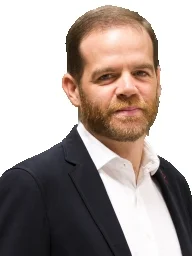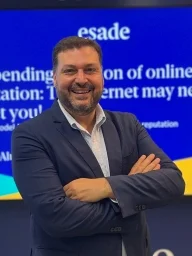Carlos Martínez Mongay (European Commission), at ESADE: 'We will only reach an agreement when we know where we’re going'
'We will only reach an agreement when we know where we’re going and what we want to do, especially when it comes to the deposit guarantee fund, although personally I am not sure whether this vision is shared by all member states.' Carlos Martínez Mongay, Director of the Directorate-General for Economic and Financial Affairs at the European Commission, participated in the most recent session of The Future of the Economic and Monetary Union a debate series organised by the, Jean Monnet–ESADE Chair, the Foundation for Financial Studies and Uría Menéndez. David Vegara, Director of the ESADE Economic and Financial Report, moderated the discussion. Alongside several other experts, Mr. Martínez Mongay analysed various pressure points related to the Economic and Monetary Union, in particular the issues of banking and fiscal union.
During his remarks at ESADE, Mr. Martínez Mongay listed the major steps made towards the Economic and Monetary Union thus far: 'The European Stability Mechanism, the revision of banking regulations, the oversight system with the resolution mechanism, the coordination of economic policies, the Juncker plan and the measures taken by the European Central Bank.' Mr. Martínez Mongay commented that “we are not starting from scratch” but noted that there is still much work to do. 'Previous measures were adopted in order to put out fires and were therefore partial and improvable,' he explained. 'Now we have to finish the job and develop these measures in order to correct the discrepancies among policies, improve governance and reduce debt.' He added: 'The key is to complete the banking union, because in order to achieve a fiscal union and start issuing Eurobonds, there has to be a transfer of sovereignty, but we still haven’t clarified where we want to go.'
The next speaker, Juan Rojas, Head of Economic and Market Analysis at the European Stability Mechanism, observed: 'There are instruments that have not yet been used because no criteria have been established for doing so.' Specifically, he mentioned the European Deposit Insurance Scheme (EDIS), which, in his opinion, is “one of the pillars of the banking union'. He added: 'The key is that the process must be clear and efficient, and it must be free of stigma.'
Elena Aparici Vázquez de Parga, Director General of Treasury and Financial Policy at the Spanish Ministry of Economy and Business, analysed Spain’s role in this process. “Spain plays a key role in the construction of Europe,” she commented. “Our citizens know and understand the benefits of the economic union despite the efforts that they have required. This is why Spain is the kingmaker when it comes to achieving consensus.' Ms. Vázquez de Parga observed: 'When it comes to the banking union, two major areas have yet to be resolved: taxes and financial agreement.' She added: 'Spain has continued to call for the creation of European unemployment insurance, which would effectively protect the economy against asymmetric shocks. We are not advancing at the pace we would like to see, so now is time for new ideas.'
Fernando Fernández, Director of Anuario del Euro, commented: 'Europe is divided because we are hiding our own national debates.' He added: 'There’s something nobody wants to talk about: I know of many countries that have no central bank, but I don’t know of any central bank without a country except for the European Central Bank, with its double sovereignty, which is hampered by excessive presidentialism and slow decision-making.' Mr. Fernández concluded: 'The markets will grow tired of waiting for us to decide what we want to be when we grow up – and they will punish us.'
The final session of the debate series on “The Future of the Economic and Monetary Union” also featured the participation of Lucía Arranz, Director of Legal Consultancy at the Bank of Spain, and Chiara Zilioli, Director General of Legal Services at the European Central Bank, whose discussion was moderated by Daniel Sarmiento, Lecturer of European Union Law at the Complutense University and lawyer at Uría Menéndez. Also taking part in the session were Jorge Yzaguirre, President of the Spanish Institute of Financial Analysts – Foundation for Financial Studies (IEAF-FEF), and José M. de Areilza, Professor at ESADE and holder of the Jean Monnet–ESADE Chair, who offered the following concluding remarks: 'The present moment is very difficult but also ideal for proposing ideas. That’s why it’s essential to hold debates like this one. We believe that Spain has much to contribute to the satisfaction of demands related to the economy, politics and European rights.'




